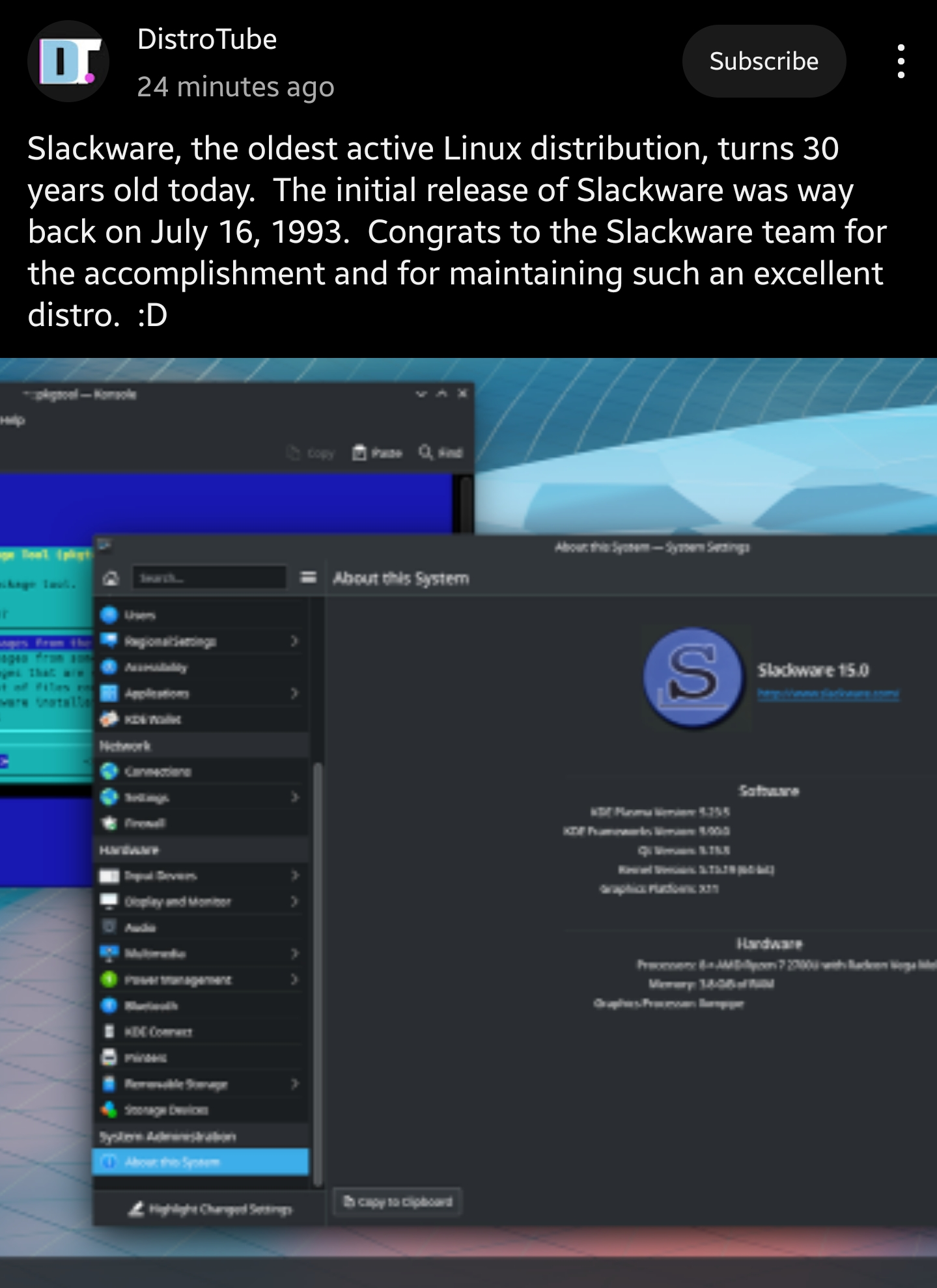this post was submitted on 16 Jul 2023
903 points (98.7% liked)
Linux
57553 readers
769 users here now
From Wikipedia, the free encyclopedia
Linux is a family of open source Unix-like operating systems based on the Linux kernel, an operating system kernel first released on September 17, 1991 by Linus Torvalds. Linux is typically packaged in a Linux distribution (or distro for short).
Distributions include the Linux kernel and supporting system software and libraries, many of which are provided by the GNU Project. Many Linux distributions use the word "Linux" in their name, but the Free Software Foundation uses the name GNU/Linux to emphasize the importance of GNU software, causing some controversy.
Rules
- Posts must be relevant to operating systems running the Linux kernel. GNU/Linux or otherwise.
- No misinformation
- No NSFW content
- No hate speech, bigotry, etc
Related Communities
Community icon by Alpár-Etele Méder, licensed under CC BY 3.0
founded 6 years ago
MODERATORS
you are viewing a single comment's thread
view the rest of the comments
view the rest of the comments

Cool to see.
I am curious though, does Slackware do anything that other Distros can't?
Is there a reason to choose it over say Debian or Fedora aside from it being around for so long and the nostalgia factor
More stable than Debian.
Useful for controlling your homemade nuclear reactor's cooling system.
As stable or user friendly fedora and debian are, their whole structure due to the way they setup their ecosystem including their package management differ in how to change things system wide as you dont want to go too heavy on it to avoid breaking, especially if you tinker things to where you conflict with its package manegment. Aka your configs vs apts/dnf package managers configs, at some point a conflict will occur to where you will need to fix it.
Slackware lack of package managers creates the initial issue of well now i got to manually take care of the dependencies. However in exchange, the packages are close to the way they were initially developed and your config system wide has significant less competition on what happens to your configs systemwide.
You can make your debian or fedora your system, however slackware gives you that initial power out of the box hence its superb stability + even if i make a mistake i find slackware to be more forgiving to fix the issue.